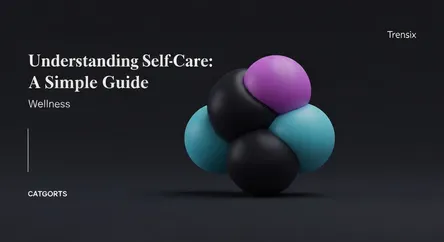Wellness
Understanding Self-Care: A Simple Guide

A clear explanation of self-care, why it's a major wellness trend, and how it positively impacts your mental and physical health.
What is it?
Self-care refers to any intentional actions you take to care for your physical, mental, and emotional well-being. It's a broad concept that encompasses everything from ensuring you get enough sleep and proper nutrition to engaging in hobbies that bring you joy. The World Health Organization defines it as the ability to promote health, prevent disease, and cope with illness with or without a healthcare provider's support. Far from being selfish, self-care is about recognizing and honoring your own needs to maintain a healthy relationship with yourself. Small, deliberate acts of self-care can have a significant impact on your overall health.
Why is it trending?
Self-care has become a major trend as a response to the fast-paced, high-stress demands of modern life. The global pandemic significantly amplified this, bringing widespread attention to mental health and the importance of managing stress and anxiety in the face of uncertainty and isolation. This increased awareness has led people to actively seek ways to prevent burnout and improve their quality of life. As a result, individuals are increasingly prioritizing activities and products that support their well-being, turning simple routines into mindful rituals.
How does it affect people?
Regularly practicing self-care has profound effects on an individual's health. It is proven to reduce stress, anxiety, and the risk of illness while increasing energy levels. Engaging in self-care can boost self-esteem, improve concentration, and lead to stronger relationships with others. By taking time to recharge and address personal needs, people are better equipped to handle life's challenges, leading to enhanced emotional resilience and a more balanced, healthy life. This practice is a crucial component for maintaining long-term physical and mental wellness.